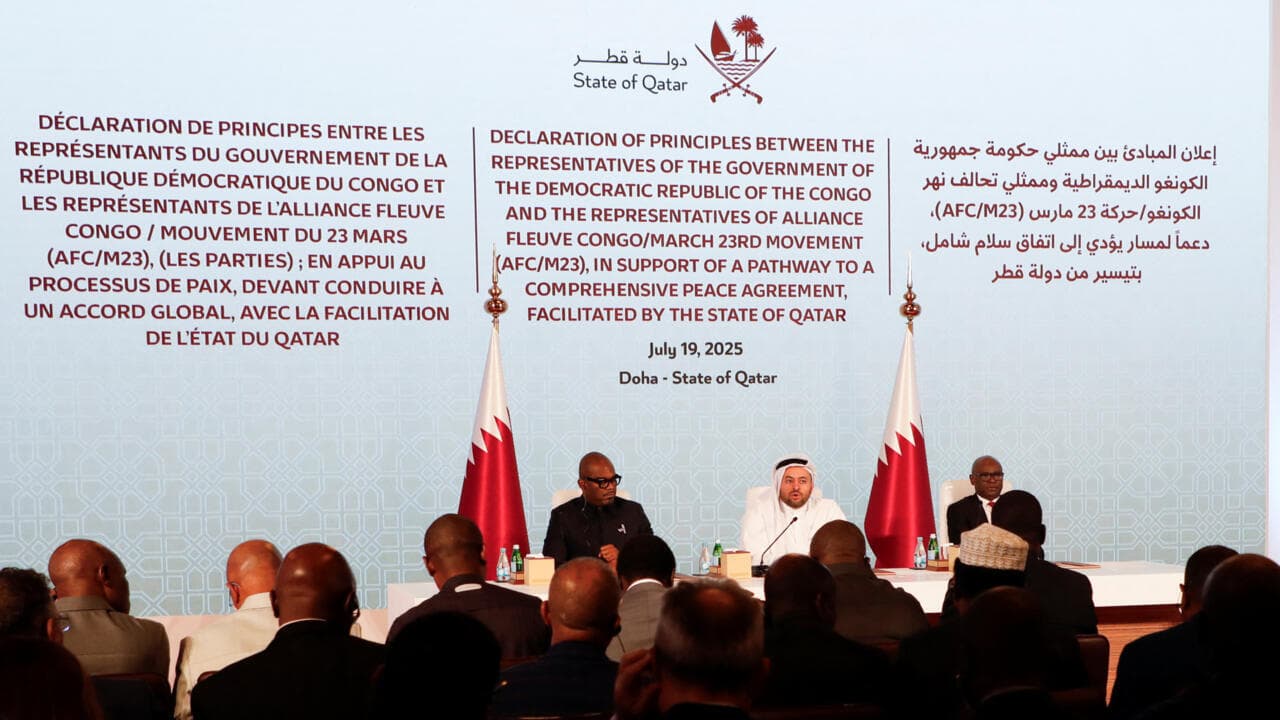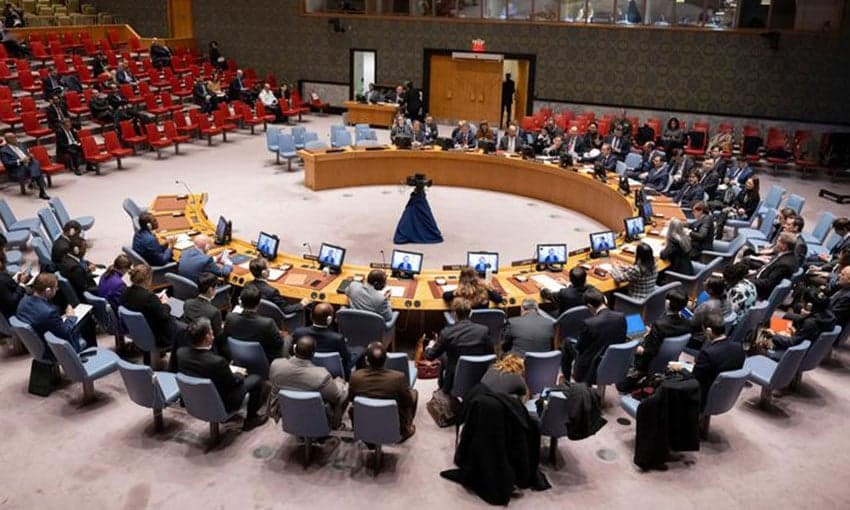Congo and M23 Sign Framework for Peace, Talks Held in Qatar
The Democratic Republic of Congo and the M23 rebel group signed a framework agreement in Doha on November 15 aimed at ending months of fighting in eastern Congo. The pact could reduce security risks for regional trade and critical mineral supply chains, but implementation faces major political and operational hurdles.
Listen to Article
Click play to generate audio

In Doha on November 15 the Democratic Republic of Congo and the M23 rebel movement signed a framework agreement intended to pave the way for a negotiated end to hostilities in eastern Congo. The accord, reached under Qatari mediation, commits the parties to a negotiating process and sets out principles for a future peace deal intended to halt the waves of violence that have destabilized North Kivu and nearby provinces.
The signing marks a diplomatic step forward after a resurgence of fighting that has drawn international concern. The conflict in eastern Congo has disrupted local markets, impeded humanitarian access and contributed to regional tensions. International actors have increasingly pressed for a negotiated settlement, citing both the humanitarian toll and the broader economic consequences for Central Africa.
For global markets the agreement matters because the Democratic Republic of Congo is a leading source of critical minerals. The country supplies the lion’s share of global cobalt, a key input for electric vehicle batteries, and is a major producer of copper and other minerals used in high technology and clean energy. Prolonged insecurity has previously forced mining companies to curtail production and prompted buyers to weigh higher supply risk premiums. A durable ceasefire and credible implementation of a final deal would ease some of those concerns, potentially stabilizing project timelines and investor appetite in the mining sector.
Yet the framework agreement is an initial step rather than a finished settlement. Implementation will require detailed protocols on ceasefire monitoring, disarmament, demobilization and reintegration of fighters, restoration of state authority and guarantees for local populations. Those tasks are operationally complex in a region where governance is fragmented and armed groups are numerous. The parties will also need independent verification mechanisms and international backing to ensure commitments are kept and to build confidence among displaced communities.
The diplomatic choice of Qatar as host underscores a broader trend of Gulf states expanding their roles in African conflict mediation and economic diplomacy. External guarantors may be essential to bridge trust gaps, provide security guarantees and coordinate humanitarian relief. At the same time, the region’s immediate stability will depend on whether other armed groups act as spoilers and whether avenues are created for addressing long standing grievances over land, governance and resource exploitation.
Policy makers and investors will watch closely for concrete timelines, the formation of technical committees and the presence of international monitors. If the framework produces a durable settlement, markets may reprice sovereign and sector risk in the DRC, lowering borrowing costs and unlocking stalled investments in mining and infrastructure. Conversely, a breakdown in the talks would likely renew risk aversion and heighten demand for supply chain diversification by manufacturers.
Ultimately the agreement offers a pathway but not a guarantee. Turning a framework into sustained peace will take months of technical work, international oversight and political compromises that address both security arrangements and the economic drivers of conflict. The international community’s willingness to support implementation will be decisive for the region’s humanitarian outlook and for the economic stability that matters to global markets.


